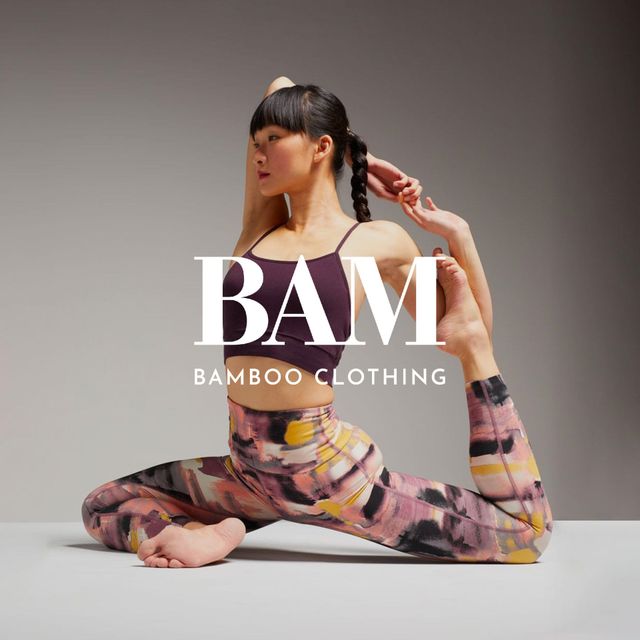Top Tips For Deciding On Hemp Clothes
Wiki Article
What Is The Sustainability Of Hemp When Compared To Cotton In Terms Of Use Of Water As Well As Pesticides And Herbicides?
Due to a variety of reasons, hemp is considered to be a more sustainable crop than cotton when it comes to the use of water, pesticides and herbicides.
Hemp- Hemp is renowned for its low need for water when compared to a variety of other crops, such as cotton. It is a drought tolerant plant that can withstand very little water. Hemp is often grown using rainwater in many areas. It's a great water-efficient plant.
Cotton- Traditional textiles are known for their heavy water use. Cotton farming requires extensive irrigation that can lead to local water shortages as well as depletion in areas with water stress. The cultivation of cotton is a water-intensive operation which raises concerns about its sustainability.
Herbicides are pesticides.
Hemp- Hemp has natural resistance to a variety of diseases and pests, which reduces the need for chemical herbicides and pesticides. While some hemp plants may need only a few pest control methods to maintain their health, the overall dependence of chemical inputs, including cotton, is far smaller than that of other crops. Hemp cultivation is almost free of pesticides.
Cotton farming - Traditional cotton farming relies heavily upon synthetic herbicides, pesticides, and weed killers for the control of pests. These chemicals may have adverse environmental consequences, such as soil and groundwater contamination, harm to the other species as well as the production of pesticide resistant insects.
In summary it has been proven that hemp is to be more sustainable as compared to cotton. This is due to the fact that it makes use of less water, pesticides and herbicides.
Hemp is a plant that requires less water than most other crops and can be grown without irrigation or rainfall.
Hemp has natural resistance to many pests and diseases, reducing the need for synthetic pesticides.
Hemp crops need less synthetic herbicides and pesticides when contrasted with traditional cotton.
It is important to keep in mind that sustainable and environmentally friendly methods vary among cultivators. Organic farming practices can also improve sustainability by decreasing the usage of synthetic chemicals and promoting soil quality. Regarding clothing and textiles' environmental impact, hemp and cotton fibers that are sustainably and organically manufactured can help reduce the impact of fashion on the environment. Have a look at the most popular hemp clothing for site recommendations including hemp bathing suit, hemp t shirt mens, hemp clothing womens, hemp clothing, mens hemp trousers, patagonia hemp jacket, patagonia hemp vest, nomad hemp clothing, hemp clothing near me, hemp jacket and more.

How Can Hemp Be Used To Improve The Carbon Sequestration Process And Sustainably?
Carbon Sequestration Hemp fibers offer many benefits for the environment which include sustainability, crop rotation and carbon sequestration.
Hemp is a fast-growing plant that is extremely fast-growing. It can mature within as short as 70 to 120 days dependent on the variety and the conditions. Photosynthesis is the process by which hemp plants absorb CO2 from the atmosphere during their rapid growth. This carbon uptake could significantly aid in carbon sequestration, reducing CO2 levels in the atmosphere.
Hemp produces plenty of biomass. The tall stalks and dense leaves produce an abundance of organic material. If this biomass is added into the soil or used for different purposes, it can help in the building up of organic carbon within the soil, further sequestering carbon.
Sustainability:
The use of minimal chemicals is Hemp cultivation typically requires less herbicides and pesticides made of synthetics when than other crops, like cotton. The natural resistance of hemp reduces the requirement for chemical intervention. Organic hemp cultivation is a sustainable method for hemp cultivation because it does not use synthetic chemicals.
Water Efficiency- Hemp is a relatively water-efficient plant that thrives even without irrigation, particularly when compared to traditional cotton that is water-intensive. This makes it more viable in areas in which water is scarce.
Soil Health- Hemp's extensive root system is able to improve the health of soil. The roots of hemp help to prevent soil erosion, by stabilizing soil's structure and reduce runoff. Hemp may increase soil microbial activity. This enhances the cycle of nutrient and soil fertility.
Hemp can easily be integrated in rotation systems. Crop rotation involves alternating different crops within the same field for a period of time. It is a wonderful way to interrupt the cycle of pests as well as improve soil quality and decrease soil loss. Hemp is a fantastic crop to rotate, and its use can contribute to sustainable farming.
Crop Rotation-
Hemp is also a good addition to rotations of crops alongside other crops like legumes, grains or vegetables. This will aid in maintaining the health of soils. It also decreases the risk of pests and diseases specific to crops, and help promote a an appropriate nutrition cycle.
Hemp roots penetrate the soil and aerate it which decreases compaction and increases water infiltration. The improved soil structure after hemp cultivation benefits subsequent plants.
In the end, hemp fibers enhance carbon sequestration, sustainability, crop rotation, and efficiency of water through their rapid growing biomass production and low chemical needs. This makes hemp cultivation an ecological and sustainable agricultural practice, and the hemp fibers that result are an eco-friendly choice for textiles and other uses. Have a look at the most popular over at this website for hemp clothing for site info including organic hemp hoodie, wholesale hemp fabric, hemp pants womens, hemp active wear, hemp shirts wholesale, hemp mens jeans, hemp shorts mens, hemp yoga clothes, hemp button down shirt, patagonia hemp vest and more.

What Are The Advantages Of Wearing Bamboo Clothing For Environmental Sustainability And Comfort?
Bamboo clothing offers several advantages for both comfort and the environment. Comfort-
The softness of bamboo is well-known for its incredibly soft. The fabric has a smooth and silky texture that makes it comfortable to wear. A majority of people find bamboo clothes to be luxuriously soft making it a preferred choice for intimate apparel, loungewear, and activewear.
Bamboo fibers have a natural capacity to absorb moisture and also breathe. Air circulates through the tiny gaps and keep you cool even in the hottest temperatures. Moisture wicking assists in drawing sweat away from the skin.
Thermoregulation- Bamboo clothes have excellent thermoregulatory properties. Bamboo clothing is able to keep you warm by capturing the body heat. It also allows you to keep cool in summer heat because it lets excessive heat and moisture to escape. The ability to adapt to temperature fluctuations is what makes bamboo clothing perfect for wearing all year.
Hypoallergenic Bamboo fabric is hypoallergenic and gentle on sensitive skin. Bamboo fabric is less likely to cause irritation on the skin or allergic reactions.
Bamboo fibers naturally have antimicrobial properties, and can inhibit the development of bacteria that produce smell. Bamboo clothing is fresh, even while being physically active.
Environment-
Bamboo is a sustainable resource that is highly renewable and ecologically sustainable. Bamboo is one of the fastest growing plants in the entire world. It is able to grow with only a little water, and does not require pesticides. Bamboo is harvested without harming it, because the root system of bamboo regenerates.
Bamboo is a water-efficient plant that is water-efficient. It can be grown without irrigation, and is typically planted with rainwater only. This reduces the environmental impact of water usage in the field of agriculture.
Biodegradability Bamboo clothes are biodegradable, which means it degrades naturally as it is disposed. This feature reduces the accumulation of textile waste that is not biodegradable in landfills.
Carbon Sequestration. Bamboo plants can absorb carbon dioxide out of the atmosphere as they grow rapidly. Bamboo cultivation serves as a carbon dioxide sink, reducing the levels of greenhouse gases, and also helping to slow the effects of climate changes.
Chemical Reduction. Bamboo fabric production typically requires the least amount of chemical processing and treatment than other textiles. Therefore, the textile industry has lower environmental impact.
Closed-Loop Production- A few bamboo fabric manufacturing processes employ closed loop systems, which reuse and recycle water and chemicals, while minimizing the amount of waste and pollution.
It is important to remember that the environmental impact of a garment can vary depending upon the manufacturing process used, as well as whether the bamboo used came from ethically and sustainably managed bamboo forests. Consumers should only buy bamboo clothing made with eco-friendly, ethical practices to ensure the greatest environmental benefits. Read the most popular bamboo clothes for more advice including mens boxer shorts bamboo, bamboo t shirts womens, kyte pajama, boody clothing, bamboo baby clothes, bamboo family pajamas, freefly hoodie, bamboo fabric clothing, bamboo pants womens, bamboo sportswear and more.
